
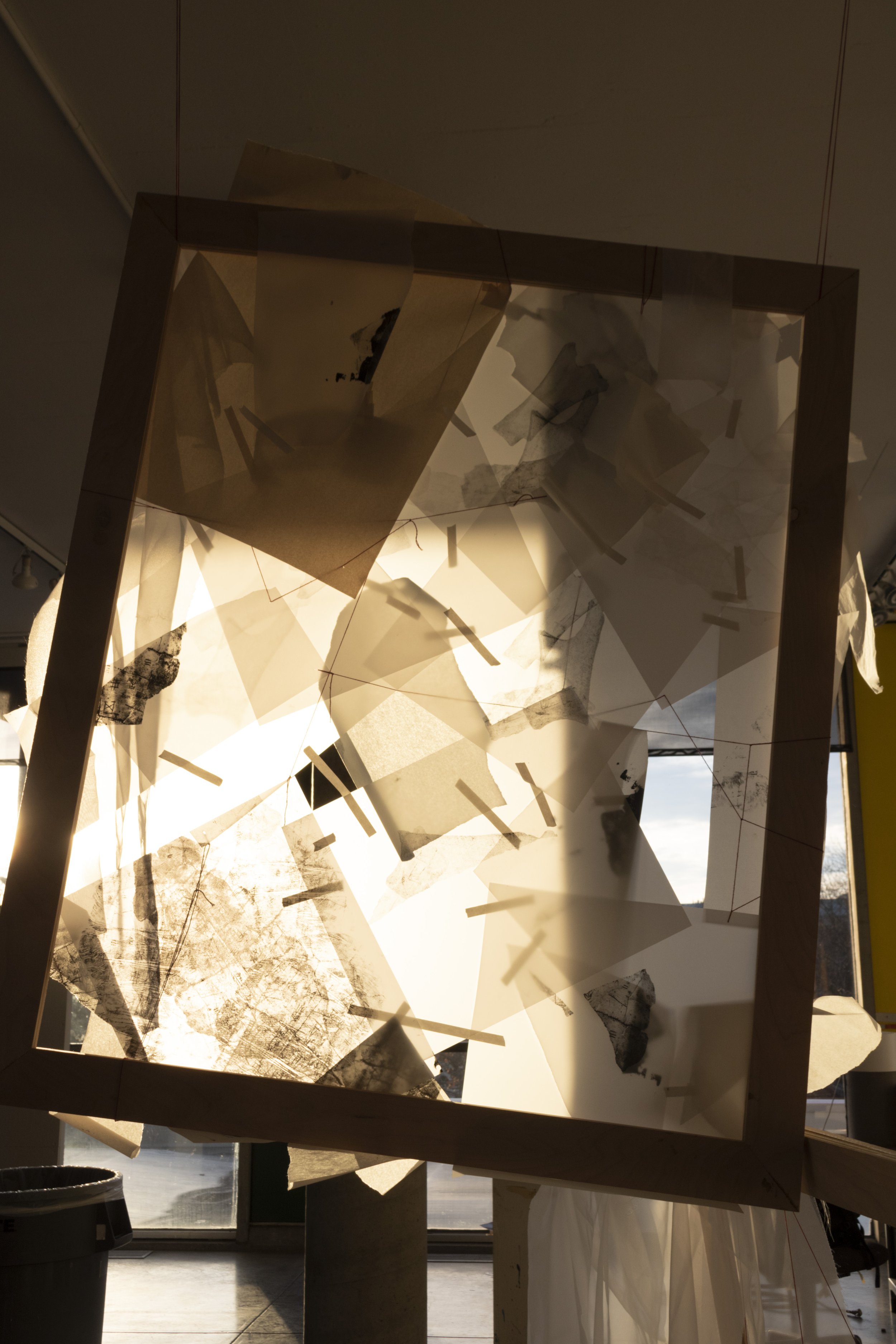
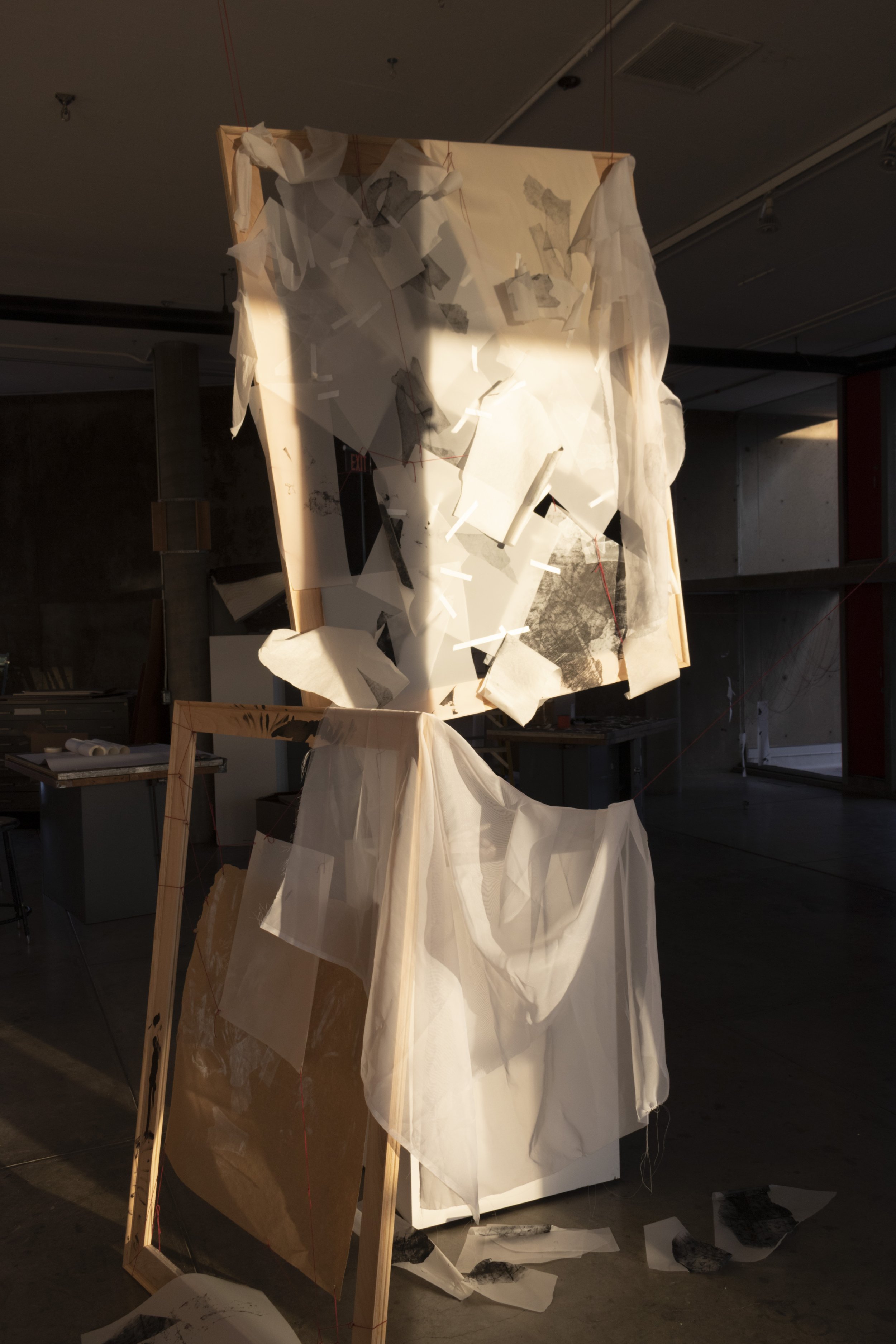
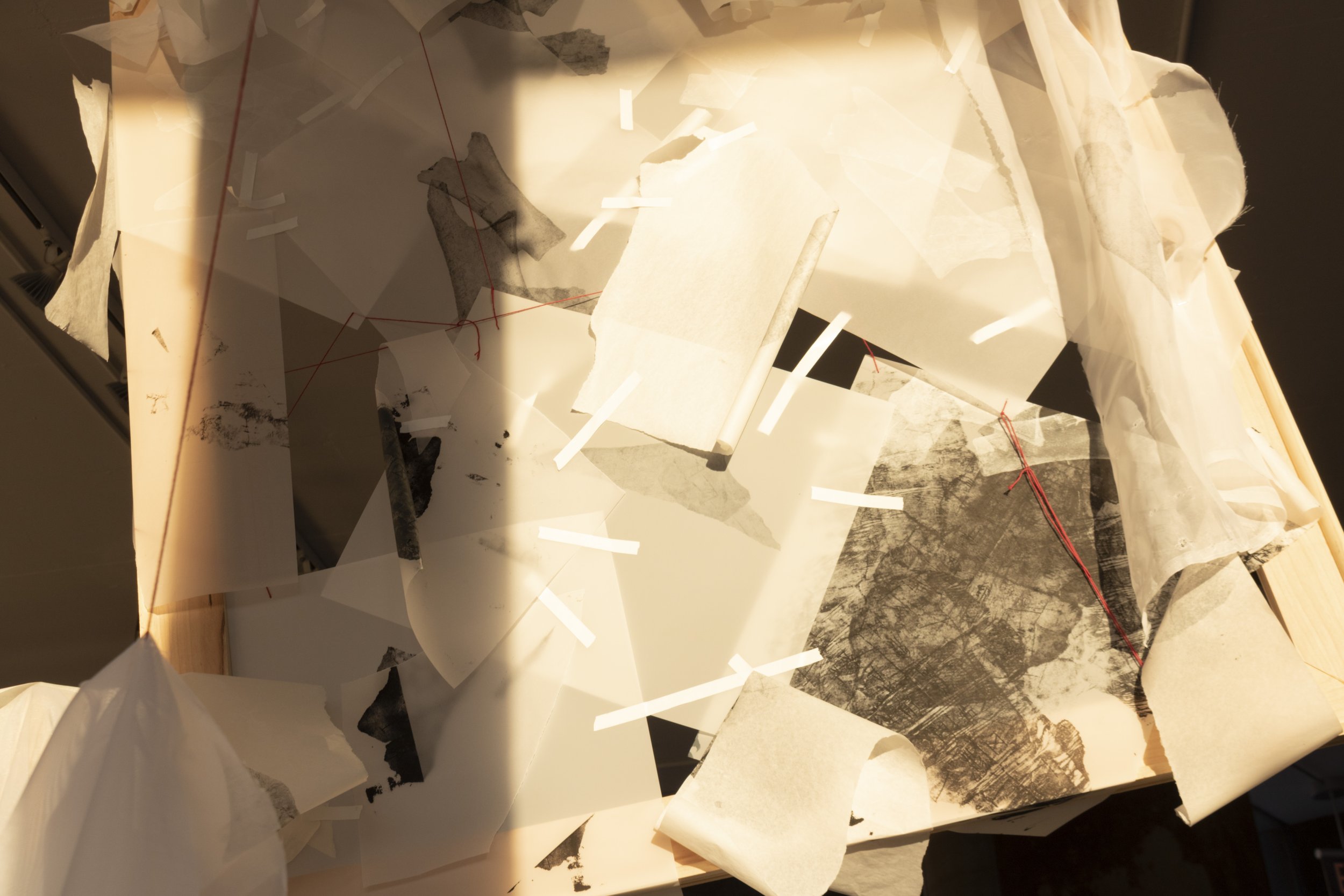
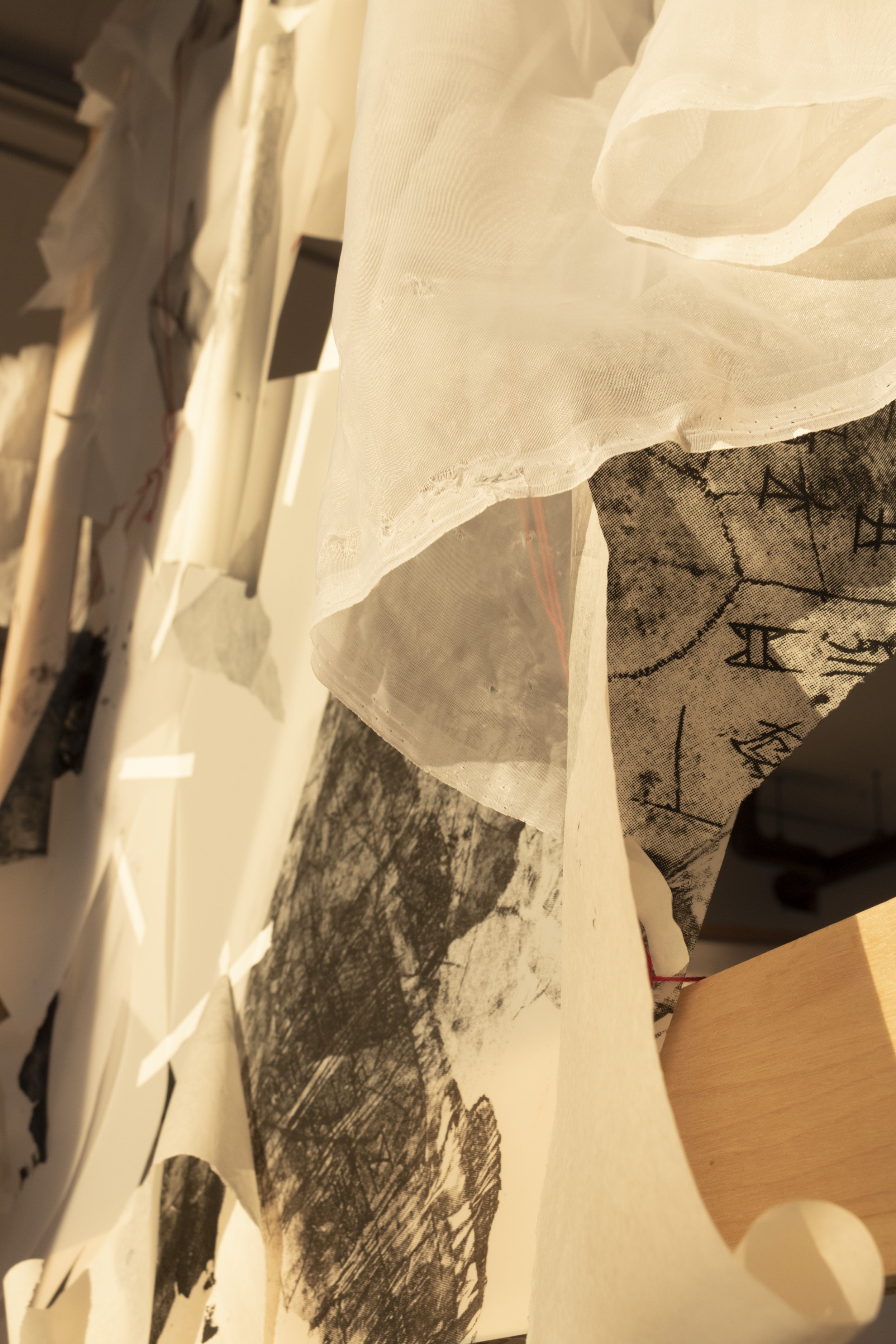
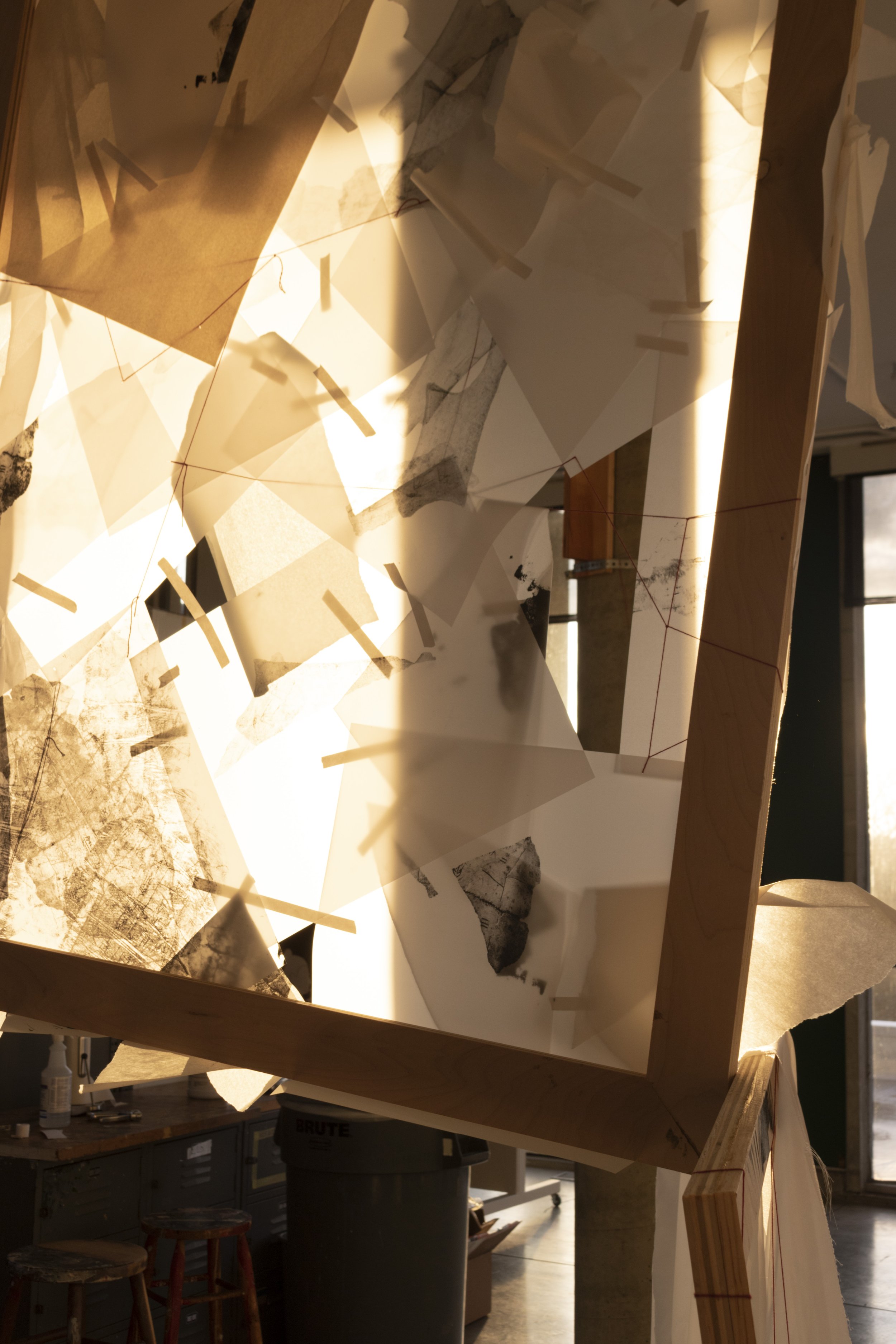
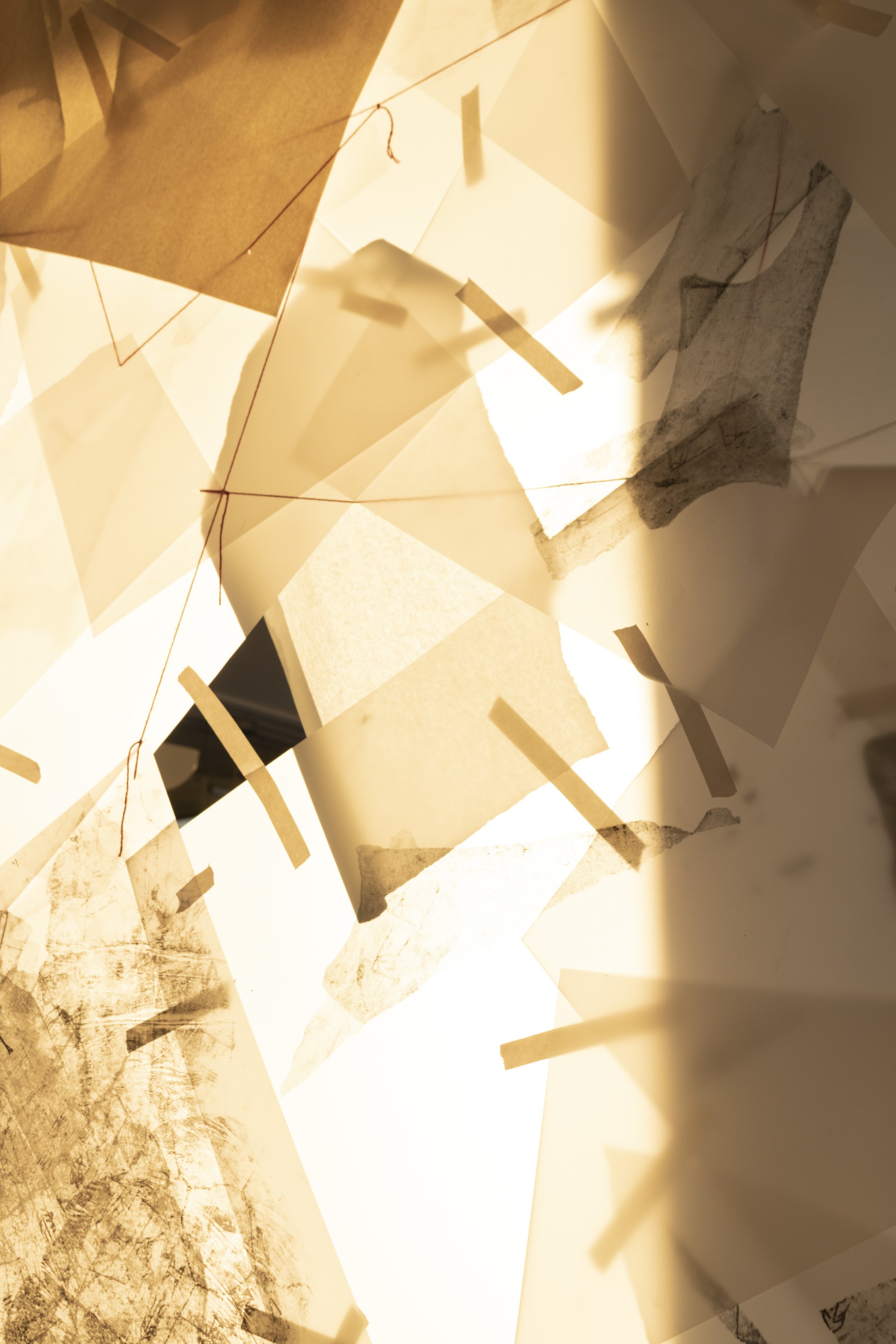
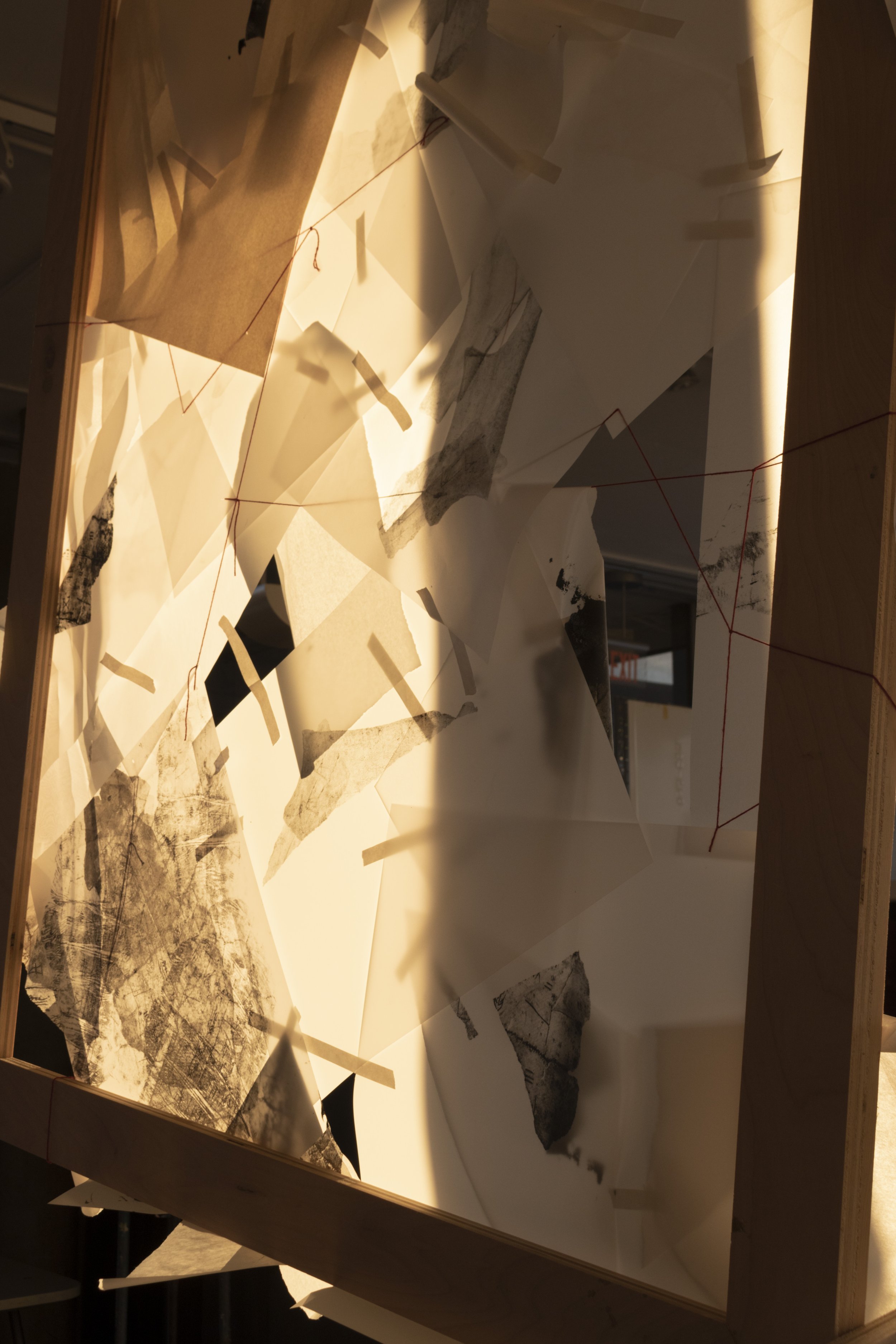
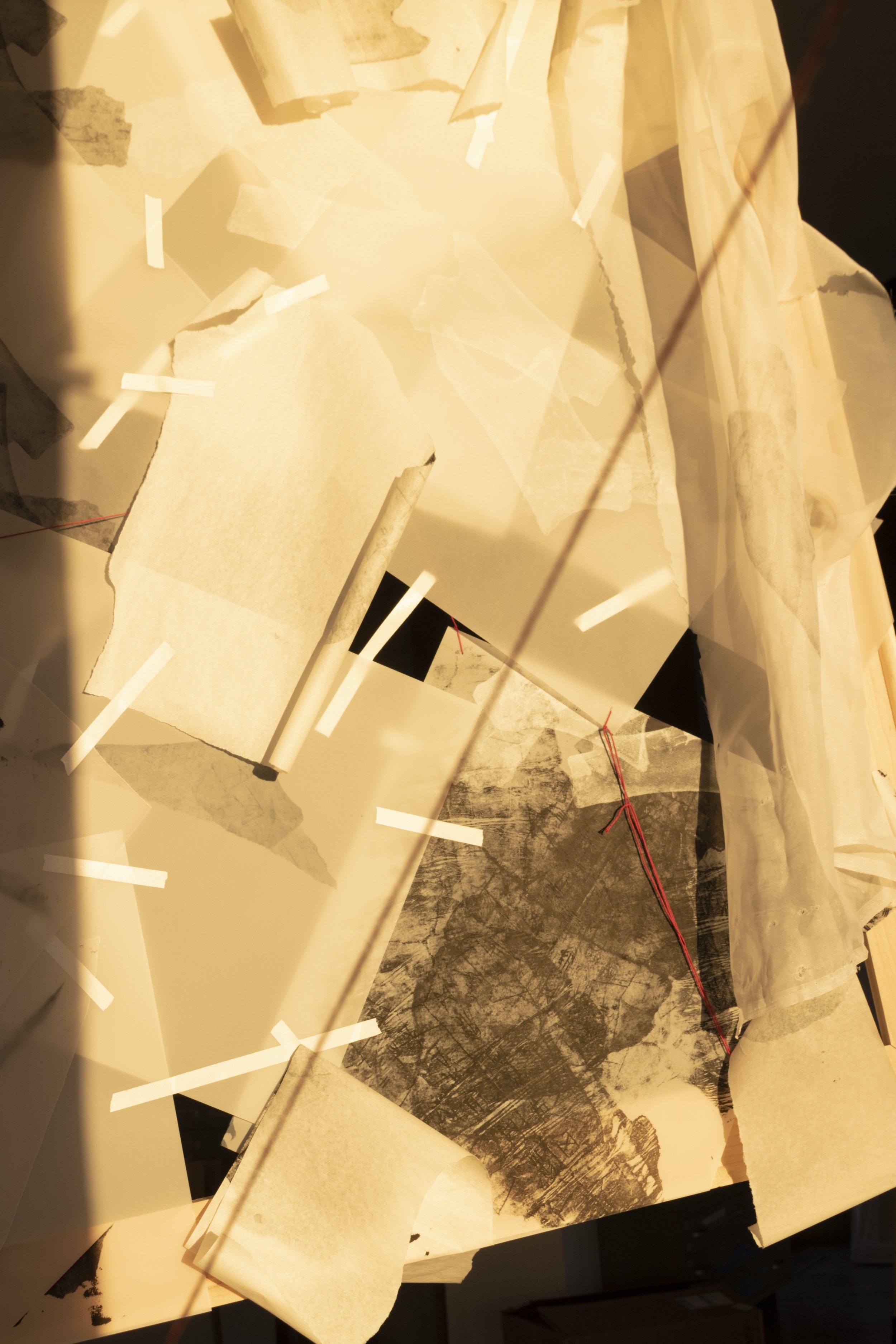
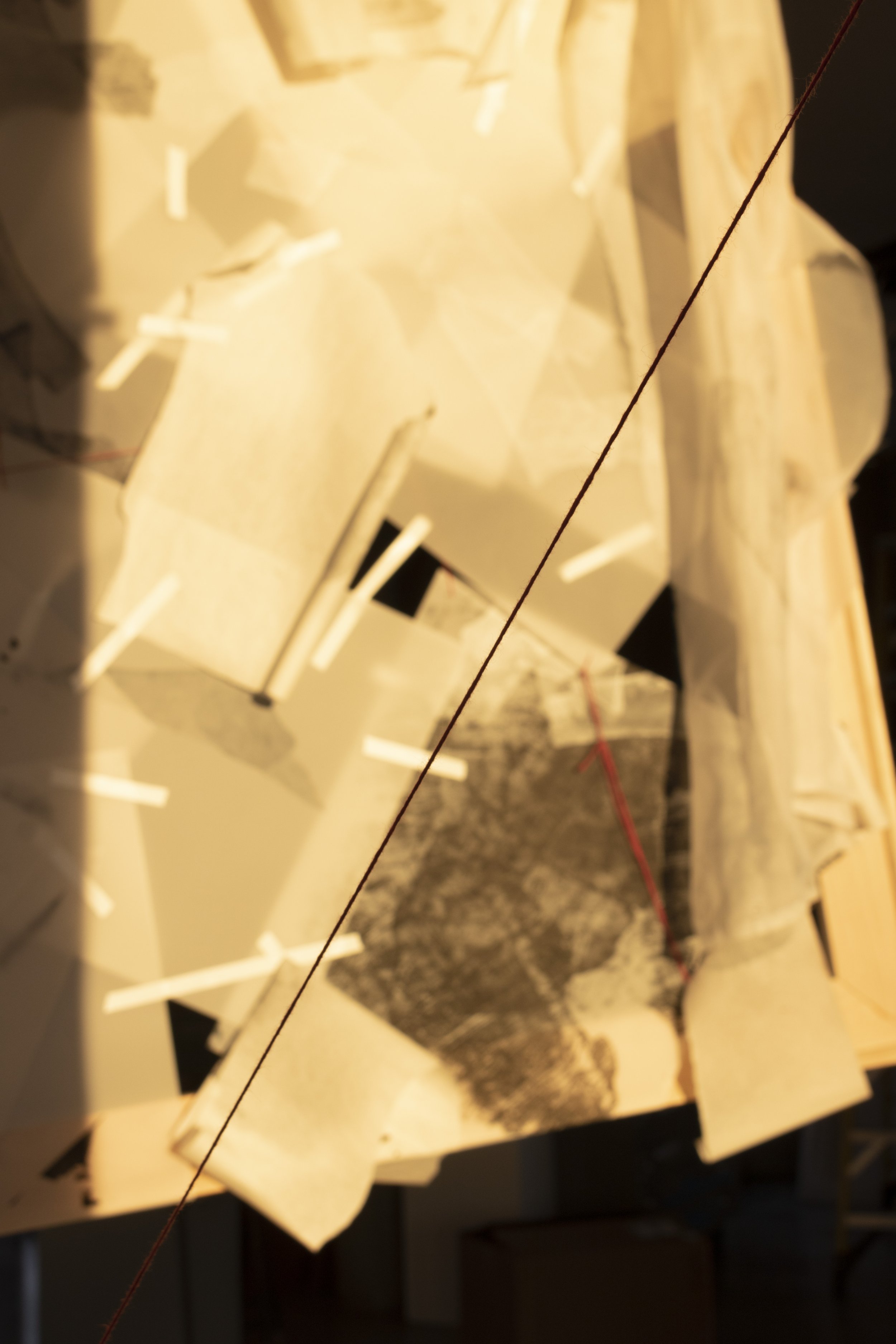
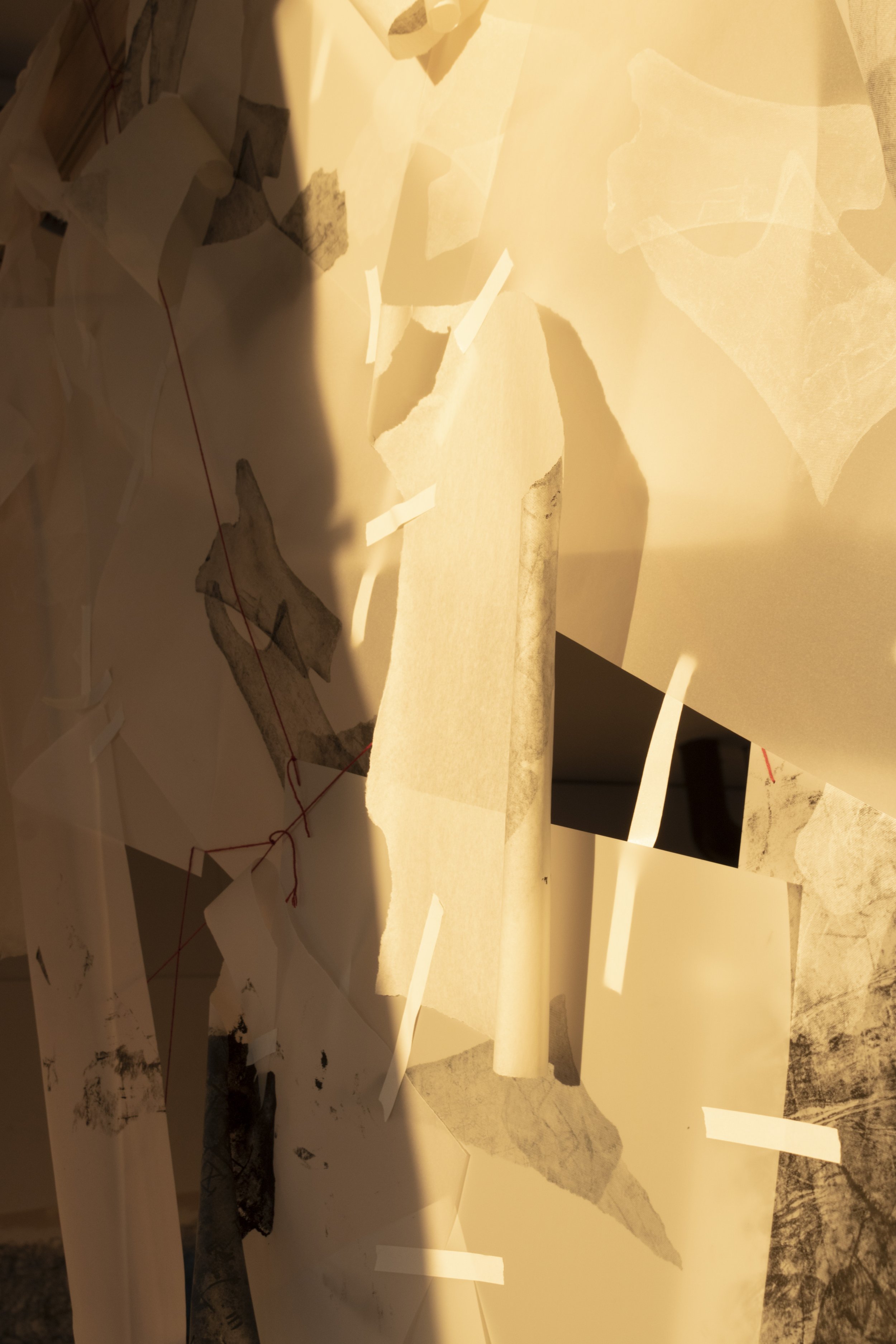
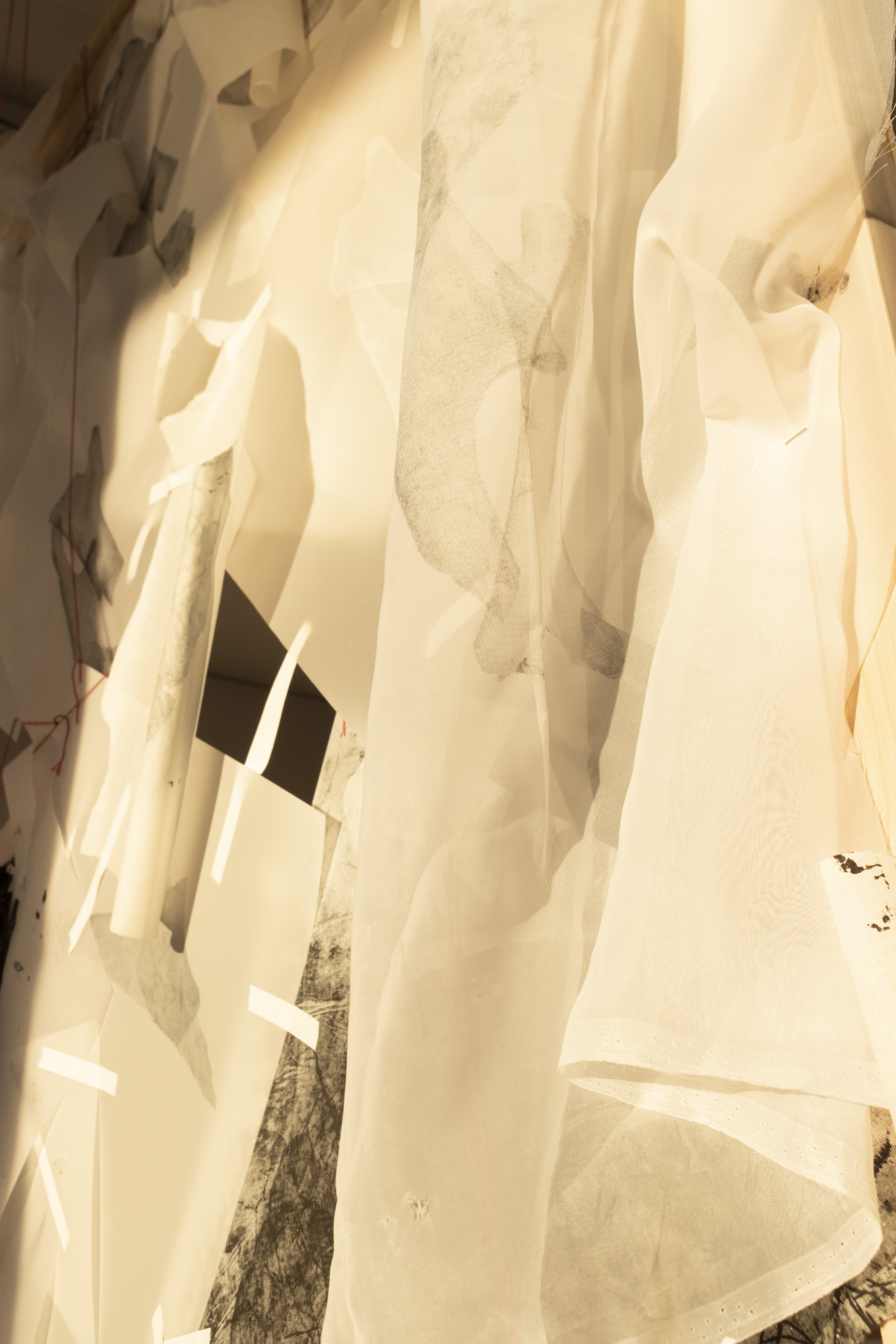
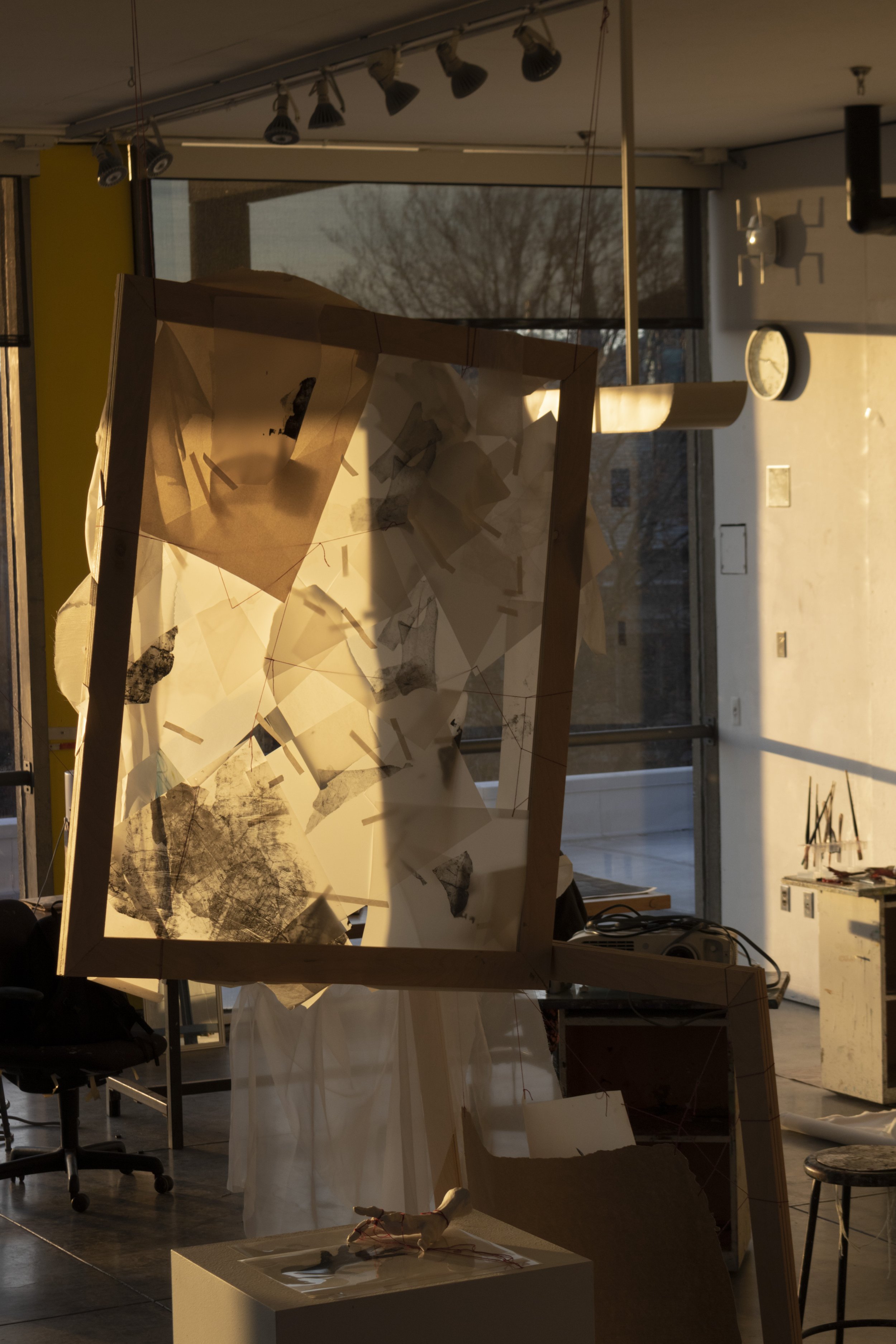


















Video projection on sculptural installation; silkscreen print on vellum, tracing paper, toilet paper, chiffon, rag paper; sumi-e ink; acrylic; hand-made wooden stretchers; string; wooden beads; unfired porcelain; tape; staples
Each canvas: 40 x 60 in.
Total installation size: approx 120 in. h x 80 in. w x 60 in. l
Video length: approx 9 min.
Cinematography by Daniel Huang
Right now I am interested in ritual as a form of recall and ordering. I investigate ritual as a kind of bodily discipline, which summons specific kinds of memories/presences. As ordering. As a science. Rituals make sense out of things, out of space. I am interested in my painting practice as a form of ritual science—a kind of alter-making through altar-making.
Painting has always been a kind of ritual for me; there is discipline involved; there is deep spirituality; there is something moving and powerful in its practice. Beginning with a formal training in oils when I was twelve, paint has been both my greatest liberator and harshest disciplinarian. Painting takes my body to task—I leave the studio with all kinds of small hurts in my joints. What kinds of discipline do I subject my body to in this ritual act of working with a matter like paint in a place like the studio? What is called upon in this kind of ordering? A ritual is a powerful thing—it orders not only its practitioner but all space around it.
In my current practice, I use porcelain, paint, silkscreen prints, string, and found materials to paint, considering how things contain time and places retain memory; how image and text summon different kinds of memories and presences; the memory of places as geologic events, ghosts that surface from the land; how materials speak and guide their own figuring. I investigate my own body as a medium through which the materials pass and become reconfigured, and through which the memories held by the materials and place in which I work are summoned. I invoke the Yijing (Book of Changes), images of oracle bones, and unfired clay to ask: where does the auratic power of a painting come from? What does it summon? What materials belong where, what happens when I make contradictions in these belongings, and how can I recombine and reconfigure them in especially powerful ways?